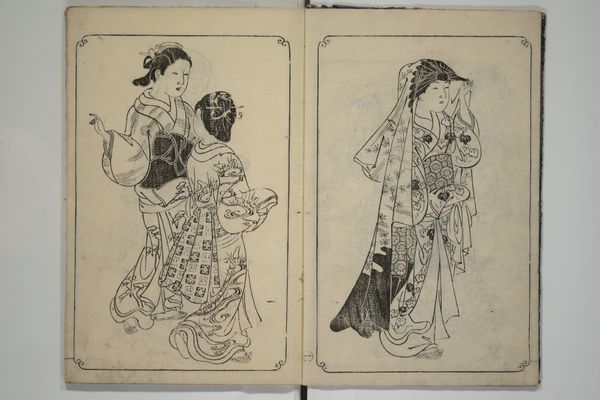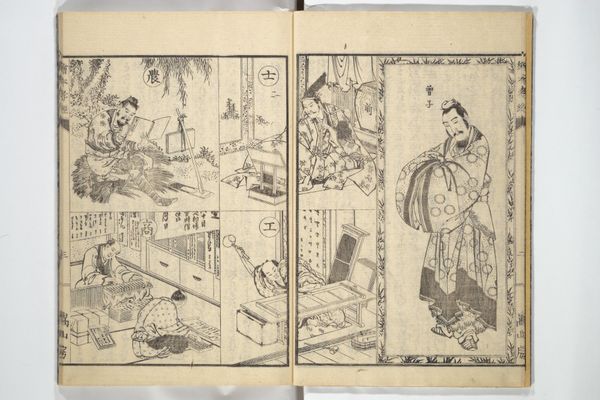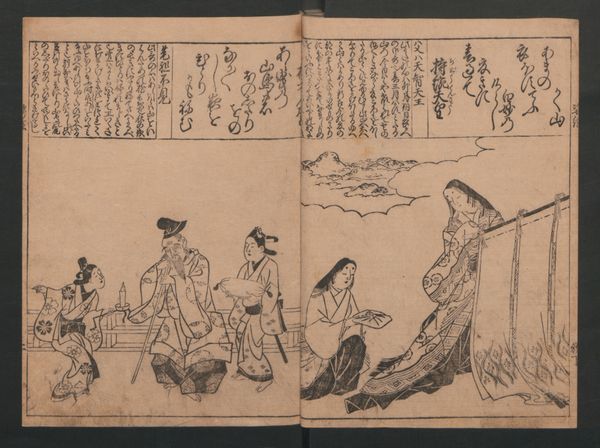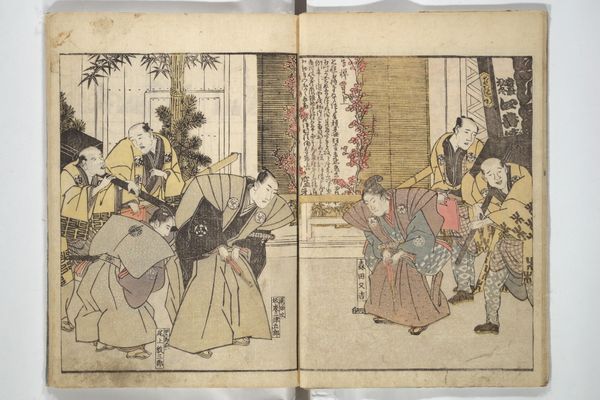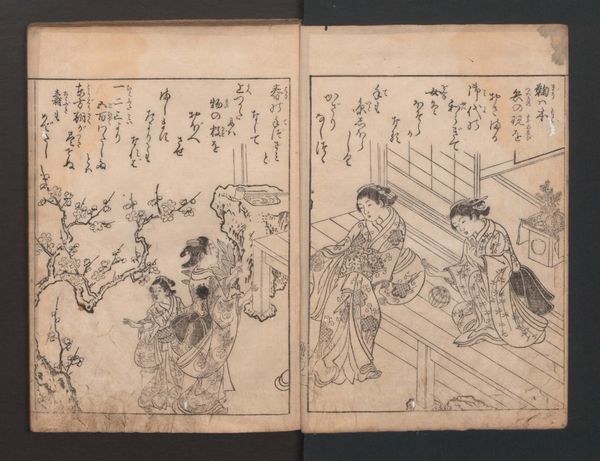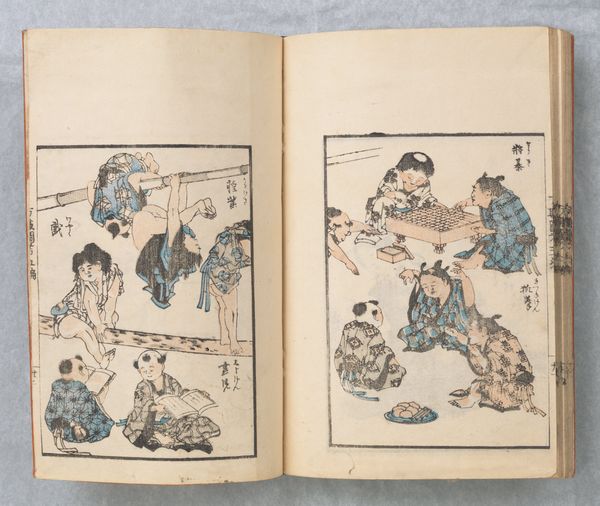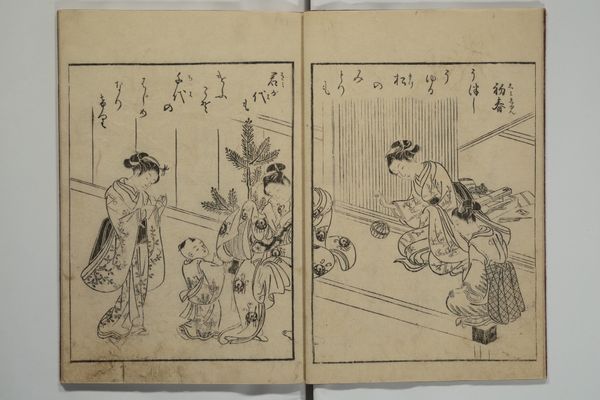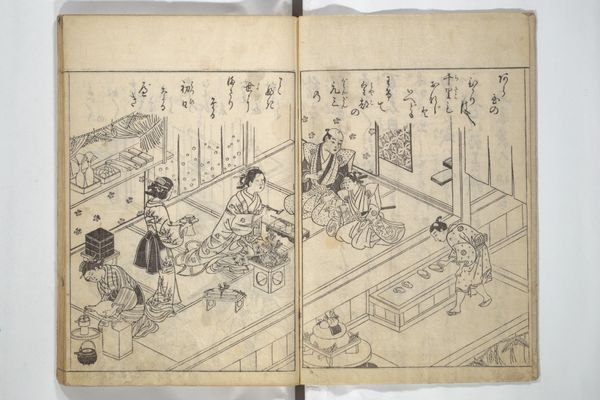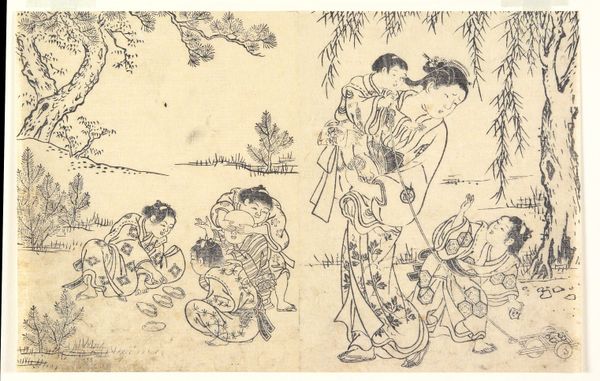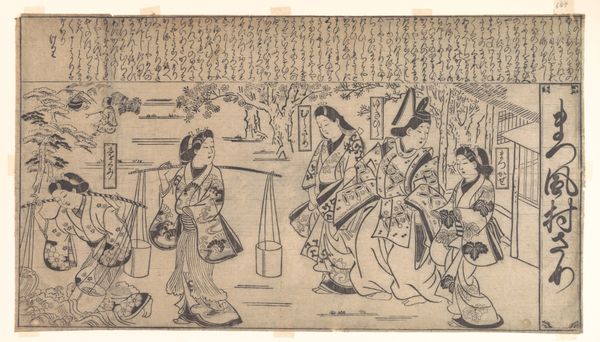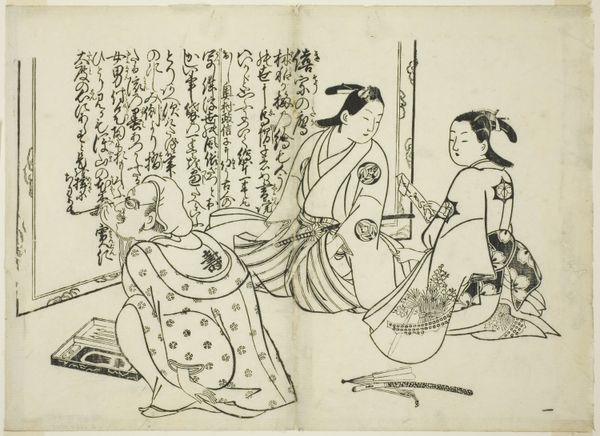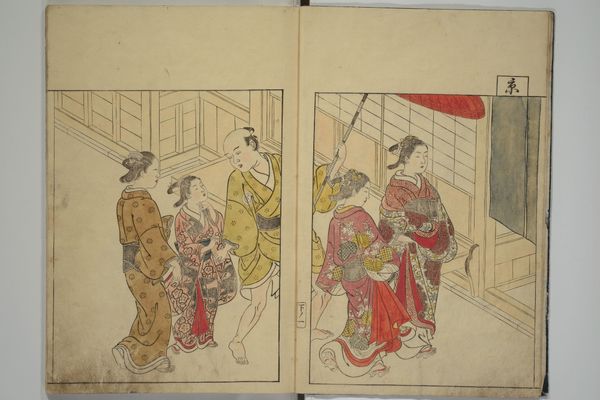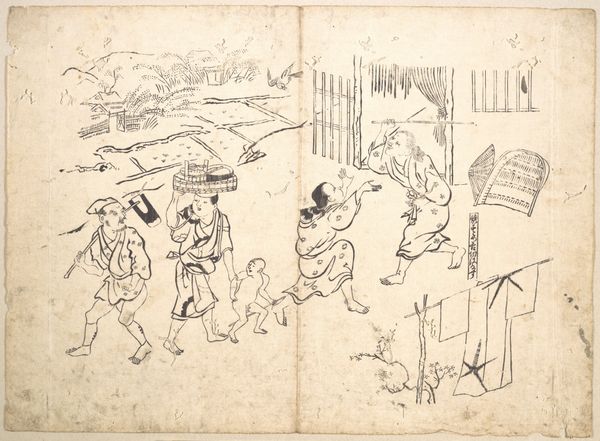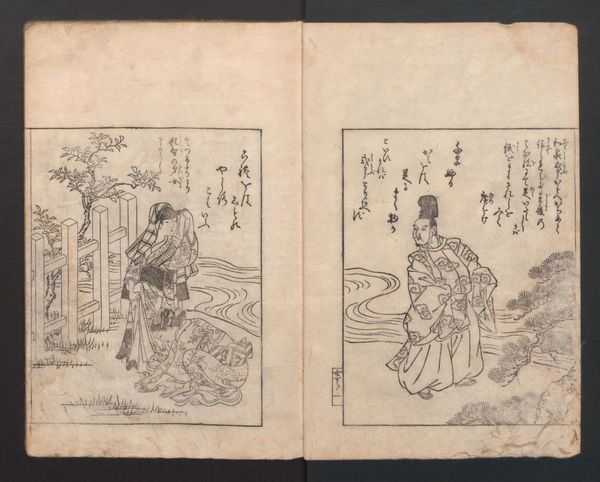
drawing, print, paper, ink, woodcut
#
portrait
#
drawing
#
narrative-art
# print
#
asian-art
#
ukiyo-e
#
figuration
#
paper
#
ink
#
woodcut
#
line
#
genre-painting
Dimensions: each: 10 7/16 × 7 3/16 in. (26.5 × 18.3 cm)
Copyright: Public Domain
Curator: These crisp lines sketching daily life, so familiar and distant all at once! Editor: That’s an excellent start to our encounter with “People of Yamato (Japan) Picture Album” created around 1800 by Yamaguchi Soken, now held in the Metropolitan Museum of Art. Curator: It gives such an ephemeral impression though, doesn't it? These glimpses captured as if a butterfly had landed and let me peek into another world for only an instant. A butterfly inked in elegant monochrome of course. Editor: Indeed. It presents very specific social types using ukiyo-e traditions with the visual language developed around the pleasure districts of the Edo period. The artwork offers a fascinating reflection on cultural values and societal structures from that era. Curator: What I love most is how Soken turns everyone into little narratives with so few lines! The postures are so fleeting and delicate that seem like gestures about to happen. I wonder what are these individuals are really doing? Editor: These images offered commoners access to the styles and activities of higher social circles through carefully crafted print culture. The woodcut printing made that access relatively inexpensive. It provided a sense of shared identity and aspirations across societal lines. Curator: Like secret windows into hidden lives, wouldn’t you say? Art can create a bridge connecting what once seemed unreachable—art creates accessibility in unexpected ways, wouldn't you say? Editor: Precisely. Through Soken's print album, art transcends mere aesthetics. We can now look into representations of culture and historical records. Curator: Right, and perhaps finding glimpses of ourselves mirrored within those old souls, no matter the distance time has brought. Editor: The album highlights the intricate relationship between art, society, and identity as relevant in the 19th century Japan. It makes you consider its connection with today's ever changing image and culture.
Comments
No comments
Be the first to comment and join the conversation on the ultimate creative platform.
